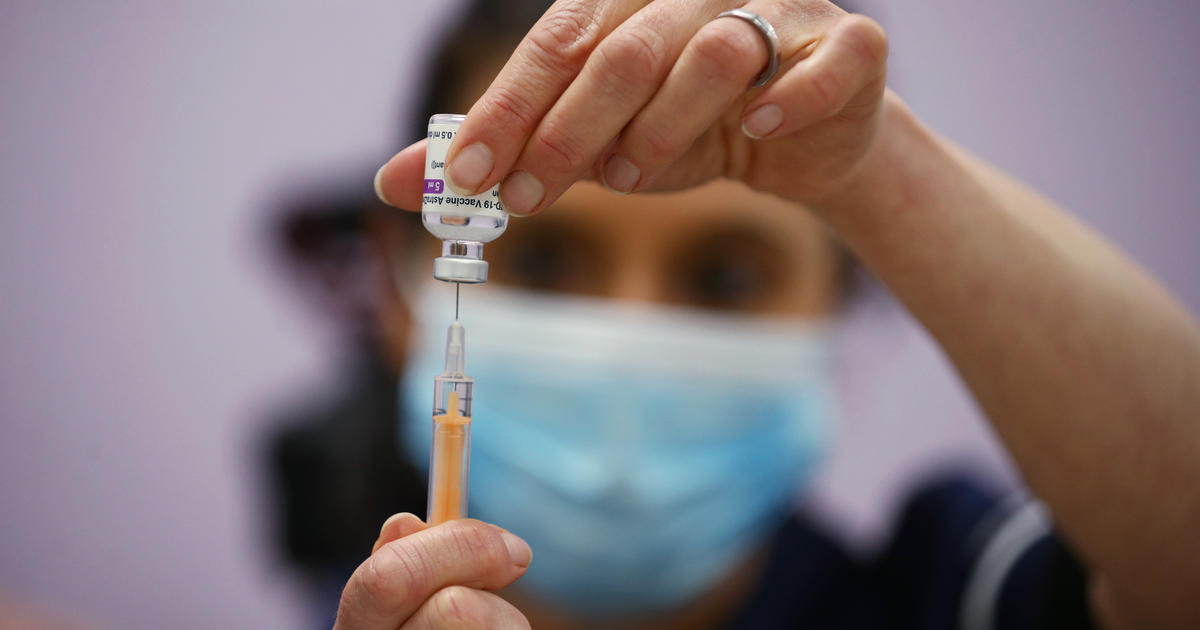
London — One of the strongest weapons against the troubling number of new coronavirus variants in the United States and worldwide may be one vaccine the FDA hasn't approved yet.
Earlier this month, the World Health Organization gave the go ahead for the Oxford-AstraZeneca vaccine to be used internationally, and it is already being distributed in countries around the world to help fight COVID-19. But AstraZeneca is awaiting the results of clinical trials in America, which it expects to wrap up in the coming weeks, before it makes its application to the FDA.
In the meantime, buoyed by the fact that their vaccine is relatively easy to update, scientists at Britain's Oxford University are modifying it in a preemptive strike to prevent new coronavirus variants, including the variant first discovered in South Africa, from taking hold.
"Plug and play"
Chief designer Professor Sarah Gilbert told CBS News that her team has already been working for months on modifying their vaccine to tackle new variants of the coronavirus and expects to have a new version ready in the fall.
The ability to turn on a dime is down to the "plug and play" platform used in the original Oxford vaccine, Gilbert said.
"You decide what antigen you want to use from the virus you want to make a vaccine against, exactly which version of it, and then you just slot it in and you make your vaccine," she said.
She also stressed that, because Oxford has its own biomanufacturing facility on campus, modifications can be fast-tracked.
"We've established our pipeline," she said. "We make the first seed of stock of the vaccine in the manufacturing facility in Oxford. That's just a few minutes away from here on campus."
Gilbert said that a modified vaccine — to take on not just the South African variant, but a number of variants of concern — could be rolled out in the United States in a matter of months.
"Astonishing" impact
Even before modification, Oxford scientists say their vaccine is highly effective in tackling the runaway variant first discovered in the United Kingdom. Real-life preliminary data shows that it kept hospitalizations down by 94%, even outperforming the Pfizer vaccine.
"We've seen the first widespread use of a vaccine in a setting where there's been a new variant that's emerged," Oxford Vaccine Group head Andrew Pollard told CBS News. "The vaccine has an impact against that variant. That is astonishing."
Part of the reason for that success is the 12-week gap between shots in the U.K., rather than the four-week program currently standard in the U.S., Pollard said.
"If you give that vaccine to many, many more people as the first dose, that ends hospitalization and deaths immediately, while if you give two doses close together, you'll be selfishly giving those two doses to half the number of people, slowing down that rollout and the protection of the population," Pollard said.
With more than 500,000 people dead in the U.S., and new variants continuing to emerge, the need to roll out more shots more quickly has never been higher.
"may" - Google News
February 27, 2021 at 07:11PM
https://ift.tt/37T1NRa
One of the strongest weapons against COVID-19 variants may be a vaccine the FDA hasn't approved yet - CBS News
"may" - Google News
https://ift.tt/3foH8qu
https://ift.tt/2zNW3tO
Bagikan Berita Ini














0 Response to "One of the strongest weapons against COVID-19 variants may be a vaccine the FDA hasn't approved yet - CBS News"
Post a Comment